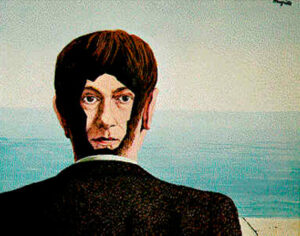
The power to place an image in other people’s minds, and to make that image vivid enough to arouse listeners to emotions of their own, is rightly called casting a spell — spell being related to the German word spiel, for “story.” Radio plays, bedtime stories, ghost stories, erotic stories — any of these are familiar examples of how a storyteller can make a listener turn the mind into an amphitheater, a boudoir, or any place the action described is occurring.
The value of a story, on the stage and in life, is that a story transcends the personal and becomes a form of shared vision, wider than an individual’s. This magic is repeated onstage whenever a story is told.
Telling a story is a chance to practice true witchcraft: the casting of a spell on audience members so that they see what isn’t there. More, the telling of a tale can reveal the occult: what takes place in the mind of the speaker.
Shakespeare’s soliloquies offer an actor special opportunities to reveal the processes of thought.
Like Mae ‘West’s sultry recitation of nursery rhymes, Romeo’s bashful recitation of Juliet’s charms works from the principle that it’s not what you say, it’s how you say it – and what happens to you while you say it. Actors telling stories begin by identifying points of views and create dramatic onstage action while telling a story by shifting those points of view.